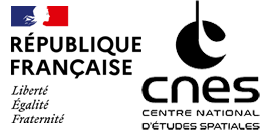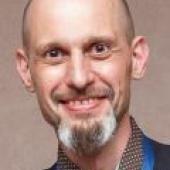Depuis une dizaine d’année on note que les méthodes d’apprentissage bouleversent un grand nombre de champs applicatifs et scientifiques. Leurs capacités à construire, à base de données brutes, des algorithmes en mesure de reproduire des phénomènes hautement complexes sont incontestablement significatifs. Quand ces phénomènes relèvent de capacités cognitives de humain, elles peuvent assurément prendre l’appellation d’intelligence artificielle.
Dans le domaine de la commande automatique des systèmes dynamiques et en particulier pour les systèmes aérospatiaux les fonctionnalités recherchées se décomposent souvent en trois éléments : “Guidance” qui caractérise la décision de trajectoires à accomplir ; “Navigation” qui caractérise la capacité à connaitre les états et paramètres du système en temps réel ; “Control” qui réalise le suivi en boucle fermée du suivi des trajectoires connaissant les états et paramètres du système.
Dans ce séminaire nous allons échanger sur la possibilité d’intégrer les outils d’apprentissage dans chacune des ces trois fonctionnalités :
- La partie “Guidance" est la plupart du temps associée à des outils d’optimisation continue, discrète ou hybride. Leur propriétés (trouver l’optimum global, rapidité de calcul) peuvent être renforcées en y intégrant des fonctionnalités issues de techniques d’apprentissage.
- La partie “Navigation” relève presque naturellement de l’apprentissage a avec une nuance quant à la disponibilité des données pour réaliser l’apprentissage en amont de l’utilisation des algorithmes en temps réel.
- La partie “Control” soulève de nombreuses questions sur les garanties de stabilité qui pourraient être données que ce soit en analyse de boucle fermées contenant des algorithmes complexes issus de l’apprentissage ou dans la conception de lois de commande apprenantes.
Le séminaire abordera ces questions en partant de l’expérience d’acteurs du spatial.
A noter que les présentations seront en anglais ou en français selon l'intervenant.
L'inscription est gratuite, mais obligatoire.
Le séminaire sera accessible en présentiel et en visioconférence, pour vous inscrire merci de sélectionner le type de participation ci-dessous :
Agenda
9:00 - 9:30
"Infusing Attitude Control with Reinforcement Learning, Practical Use Cases and Lessons Learned from GNC-v.AI and HOPAS”
Pierre Lachèvre ou Kristen Lagadec ADS
9:30 - 10:00
"Learning-based State Reconstruction with Confidence”
Matthieu Barreau KTH
L’utilisation des “réseaux de neurones informés par la physique” (PINNs) en contrôle est de plus en plus considérée. Cela permet d’étudier nos problémiques usuelles (stabilité, performance, observation, régulation…) mais sur des systems très complexes. Cependant, il n’y a pas (ou très peu) de garantie sur la solution propose après l’entrainement. Dans cette presentation, je vais d’abord définir ce qu’est un PINN puis montrer son intérêt. Ensuite, je vais décrire une solution statistique permettant d’évaluer la confiance que l’on peut avoir en cette méthode.
10:00 - 10:30
"Deep-Learning embarqué pour le SCAO”
Pierre Dandre - ThalèsAleniaSpace
Absract : L’avancement sur les algorithmes d’Intelligence Artificielle en combinaison avec l’amélioration de la capacité des processeurs embarqués permettent d’envisager l’application de ces techniques novatrices pour des nombreuses applications satellites. L’étude Fiables, proposée par le CNES et développée par le service R&D Avionique et Puissance chez Thales Alenia Space a exploré les possibilités d’application d’une Intelligence Artificielle pour le contrôle d’attitude d’un satellite.
café
10:50 - 11:20
"AI for ESA AOCS and GNC Systems: preliminary perspectives and next steps”
par David Sanchez de la Llana, en cooperation avec Bénédicte Girouart, ESA Abstract : The presentation will give an overview of recent results of ESA R&D activities dedicated to exploring the use of Artificial Intelligence (AI) and Machine Learning(ML) techniques for the development and verification of the Guidance Navigation and Control systems in our Space missions. A second part will briefly present our intended and future activities to explore further AI/ML for the benefit of GNC system engineering.
11:20 - 11:50
"Policy iteration for deterministic discrete-time systems: robust stability and near-optimality guarantees”
Romain Postoyan CNRS, Univ. Lorraine, CRAN Abstract : Dynamic programming (DP) plays a major role in various fields including reinforcement learning, operations research, computer sciences and of course control engineering. DP allows to solve general optimal control problems in terms of dynamical systems and cost functions. In this talk, we will focus on plants described by deterministic nonlinear discrete-time systems whose inputs are generated by a policy iteration (PI) algorithm. Our goal is to establish sufficient conditions under which robust stability properties can be established for the closed-loop system. Interestingly, we will see that stability can then be exploited to analyse the near-optimality properties of the algorithm used to generate the control inputs, thereby improving existing near-optimality bounds.
déjeuner
13:30 - 14:00
"Mise à jour des couches de contrôle des réseaux neuronaux par le biais d'un mécanisme basé événements”
"Layers update of neural network control via event-triggering mechanism"
Sophie Tarbouriech LAAS-CNRS
Abstract: This talk deals with the design of event-triggering mechanisms (ETM) for discrete-time linear systems stabilized by neural network controllers. The proposed event-triggering mechanism is based on the use of local sector conditions related to the activation functions, to reduce the computational cost associated with the neural network evaluation. Such a mechanism avoids redundant computations by updating only a portion of the layers instead of evaluating periodically the complete neural network. The theoretical conditions are obtained by using a quadratic Lyapunov function and an adequate abstraction of the activation functions via generalized sector condition to decide whether the outputs of the layers should be transmitted through the network or not.
14:00 - 14:30
“Deep reinforcement learning for launcher sloshing control”
Périclès Cocaul ONERA en coopération avec Martine Ganet ArianeGroup
14:30 - 15:00
Control Design via Bayesian Optimization with Safety Constraints
Authors: X. Bombois (CNRS) and M. Forgione (Dalle Molle Institute for Artificial Intelligence, Lugano, Suisse)
Abstract: Bayesian Optimization is a powerful machine-learning tool enabling automated design of fixed-structure controllers. A sequence of closed-loop calibration experiments is performed, and the next configuration to be tested is selected by the optimization algorithm in order to minimize an objective function measured directly on the real system. While the approach has been shown to be effective, its applicability is limited in certain domains by safety considerations, as the algorithm may suggest controller configurations which lead to dangerous behaviours in some of the calibration experiments. In this paper, we modify the standard Bayesian Optimization algorithm by introducing explicit constraints for safe exploration of the controller configuration space. The constraints are derived based on a preliminary model of the process dynamics, which is assumed to be available. Aspects for efficient implementation of the proposed methodology are discussed. Simulation examples highlight the advantage of the proposed methodology for controller calibration over the plain Bayesian Optimization algorithm. For more details, please see https://smex-ctp.trendmicro.com:443/wis/clicktime/v1/query?url=https%3a%2f%2fhal.science%2fhal%2d03559979&umid=d0a1bf9c-c35c-4714-984d-e570c594f0e8&auth=866db8ae3d68cbb66bceb53e20e8526311e9acb1-406ab96dd04871b8fca64b5e35514e1fdaa33968 .
café
15:20 - 16:20 Table ronde
Dimitri Peaucelle - Xavier Bombois (en ligne) - Pierre Dandre





